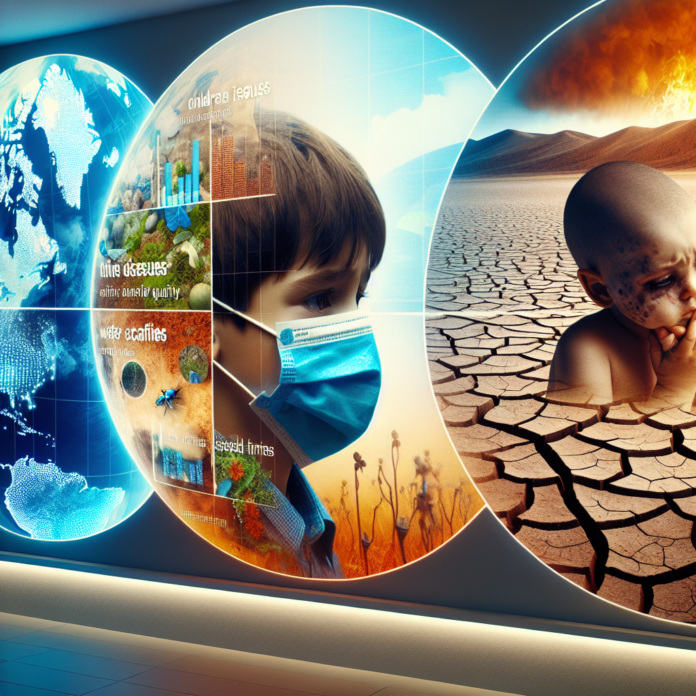Three Ways Climate Change Impacts Children’s Health World Economic Forum
Climate change is a pressing global issue that impacts everyone, but children are particularly vulnerable to its effects. From physical health problems to mental health issues, the younger generation is facing numerous challenges as a result of a changing climate. Here are three key ways climate change is affecting kids’ health, along with additional relevant information.
1. Respiratory Issues
One of the primary ways climate change affects children’s health is through respiratory problems. Increased levels of air pollution, such as higher concentrations of ground-level ozone and particulate matter, can exacerbate asthma and other respiratory conditions. Children are more susceptible to these pollutants because their lungs are still developing, and they tend to spend more time outdoors.
Additional Information
Recent studies have shown a direct correlation between rising temperatures and the frequency of asthma attacks in children. Furthermore, wildfires, which are becoming more common due to climate change, release large amounts of smoke and pollutants into the air, further aggravating respiratory conditions.
2. Heat-Related Illnesses
As global temperatures rise, children are at greater risk of heat-related illnesses. Young children, in particular, are less able to regulate their body temperature and are more prone to heat exhaustion and heatstroke. Prolonged exposure to high temperatures can also lead to dehydration and other serious health issues.
Additional Information
Urban areas, often referred to as “heat islands,” can be significantly warmer than their rural counterparts due to human activities and infrastructure. This phenomenon exacerbates the risk of heat-related illnesses in children living in cities. Additionally, schools and playgrounds may lack adequate cooling systems, putting children at further risk during heatwaves.
3. Mental Health Challenges
Climate change doesn’t just affect physical health; it also has significant mental health implications for children. The stress and anxiety associated with extreme weather events, such as hurricanes, floods, and wildfires, can lead to long-term psychological effects. Children who experience these events may suffer from post-traumatic stress disorder (PTSD), anxiety, and depression.
Additional Information
In addition to the direct impact of extreme weather events, the broader awareness of climate change and its potential future impacts can also contribute to eco-anxiety in children. Schools and parents can play a crucial role in providing support and education to help children cope with these mental health challenges.
Conclusion
As climate change continues to advance, it is crucial to recognize and address the unique ways in which it affects children’s health. By understanding these impacts and taking proactive measures, we can help safeguard the well-being of the younger generation and ensure a healthier future for all.


